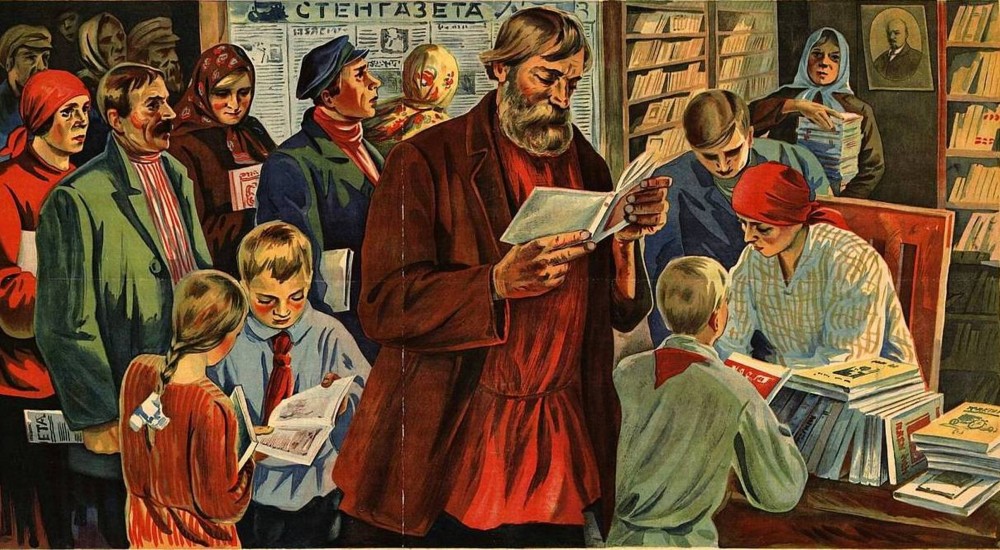
The article characterizes the initial stage of a large-scale campaign to eliminate illiteracy, which took place in Ukraine in the 20s-30s of the ХХth century. It’s stated that general illiteracy hampered the economic and cultural development of the whole country. Therefore, after the October Revolution of 1917, along with the military front and the front of the struggle against economic destruction, there was a third — cultural, whose primary task was the struggle for literacy of the population. For the first time, documents from the State Archives of the Sumy Region on the process of a liquidation illiteracy in the region are being introduced into scientific circulation. The documents provide an idea of such activities as agitation of the population for literacy, encouragement of adults to study in illiteracy institutions and the ideological factor of the campaign to eliminate of illiteracy in Sumy region. One of the most important stages in the history of education and culture of the early twentieth century was the work to eliminate illiteracy, which unfolded widely after the adoption of the Decree of the People’s Commissar of the RSFSR “On the elimination of illiteracy among the RSFSR population” of December 26, 1919. The document provided for the complete elimination of illiteracy throughout the country. Liknep in Ukraine was initiated by the resolution of the SNC of the USSR “On Combating Illiteracy” of May 21, 1921, which virtually duplicated the previous decree of the People’s Commissar of the RSFSR, thus giving it effect in the Ukrainian SSR. O. Boyko, V. Kozyr, V. Motuz, and S. Svistovych dealt with the issue of eliminating illiteracy in Ukraine in various aspects. The elimination of illiteracy in the Sumy region is not represented by extensive historiography. Mostly local historians developed the topic of Ukrainization in the Sumy region in the 1920s and 1930s. In recent years, there has been interest in the topic, in particular, the issue of the liknep campaign is the subject of articles by L. Epik and N. Petrenko, the latter is working on thorough work on this issue. The source base of the study consists of documents of the 20-30s of the XX century of the State Archives of Sumy region. The term “liknep” (likvidatsiia nepysmennosti — elimination of illiteracy) meant the elimination, ie elimination of illiteracy, in other words, the teaching of basic literacy to those who cannot read, write and count at all. In contrast to the broad understanding of the word, in the system of likneps the word “literacy” meant only the initial, alphabetic literacy. The elimination of illiteracy was carried out by the educated part of the population in the order of labor service. Not only educational institutions, but also cultural and educational institutions, trade unions and committees of poor peasants took an active part in the dissemination of education. To solve the complex of problems related to the elimination of illiteracy, a system of special educational institutions has been created within the framework of public education. Working on the funds of the State Archives of Sumy region, we managed to find documents that characterize the initial stage of the campaign to eliminate illiteracy in Sumy region. In general, various forms of agitation for writing were used to attract illiterate citizens to the lyceums: reports at the meeting, devoted to substantiating the importance of writing with examples of its practical use; evenings of agitation for education, lectures. In addition, the agitation was also obvious. In particular, printing houses offered organizations a variety of campaign posters and illustrations. The agitation was successful. However, the authorities also understood that the population needed an incentive to study. That is why the authorities sent out documents with detailed instructions on benefits for students and those who have already learned to read and write. In particular, the hours of work with the preservation of wages were reduced for students, as well as certain benefits were provided when applying for and paying off loans, when insuring property, during market operations, and so on. All this was done in order to instill communist ideology, because from the first days of the Bolshevik revolution, the fight against illiteracy was considered by its ideologues as the most important political task, without which the success of social transformation was unlikely. Therefore, the elimination of illiteracy had a dual purpose: the Bolsheviks followed the general idea of the need for knowledge and the ideal of creating a full-fledged personality, on the other — setting the task of industrialization, the country needed a more literate worker. But this worker could fully meet the demands of the new government only if, along with knowledge, he mastered the advanced ideology. The policy of eliminating illiteracy was implemented on the territory of Ukraine, and a certain range of archival documents gives reason to believe that this political campaign was successful in Sumy region. The documents presented in the publication provide an opportunity to consider in more depth the initial stage of the campaign to eliminate illiteracy not only in Sumy region, but in Ukraine as a whole, as most of these documents were sent by the central government to all educational institutions. Documents are published with the original language and punctuation.
Source: Hrytsenko A.P., Chumachenko O.A., Prokopchuk V.S. (2022). The initial period of the campaign to eliminate illiteracy in the Sumy region in the 1920s: agitation for literacy, encouragement to study on an ideological factor (according to the State Archives of Sumy region). Sumy historical and archival journal. №XXXVІІI: 48-56
Source web-site: https://shaj.sumdu.edu.ua/wp-content/uploads/2022/07/5_Hrytsenko.pdf
Number of views: 2113